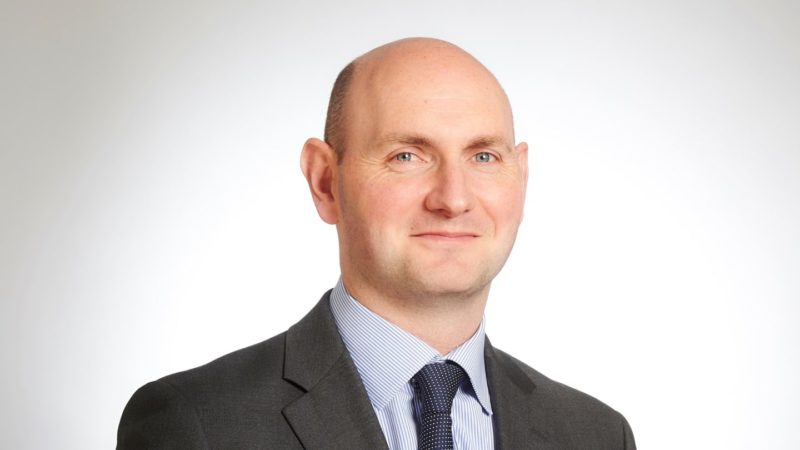While the Invesco multi-asset team is backing equities to continue outperforming bonds in the long term, it has warned investors that challenges could present themselves in the coming 12 months.
Benjamin Jones, director of macro research at Invesco, says the multi-asset team has favoured equities over fixed income through 2021. While not expecting a crash in the short-term, after a strong year he is tempering his optimism into the year end.
“We believe that the long-term outlook is positive, with plenty of room for this market cycle to run, which should provide an uplift for stocks,” says Jones.
Despite reason for optimism in the long-run, he adds that there are some evident challenges that could take place in the coming year. The most pressing of these, he says, is that markets have delivered strong returns in 2021 which has resulted in stretched multiples.
“It is understandable that many, including us, are questioning whether there will be a pause as we head into the end of the year,” he says. “Who could blame some investors for profit-taking into year end?”
He adds: “We are very aware that margin pressure could create headwinds for stocks and general market confidence. This is a topic we are looking at very carefully.”
Trimmed exposure
For Jones, it is important to assess whether demand strength and revenue growth mean that corporate earnings can increase even as margins compress.
“Thus far, cost-cutting in other areas has meant that margins have expanded this year,” he says. “But that will not continue forever.”
He warns that fourth quarter earnings could be vulnerable to some negative surprises; but adds that looking further ahead, increased corporate and consumer spending should allow for greater productivity and growth, hence the team’s more positive long-term outlook for equities.
“Inflation and policymarkers’ responses are key considerations, as are corporate earnings growth and the direction of markets,” he says. “These should cause little more than wobbles in markets, but they did lead us to trim our equity exposure.”
In the long-term, however, he added that bonds look far more expensive than equities, the return in cash is “derisory” and the team does not expect an imminent recession.
“Therefore, we maintain our preference for equity over fixed income assets,” he says.
Profit taking
Another group cutting back its model portfolio equity exposure is 7IM.
While a new era of consumer and corporate confidence should set the world up for a period of strong economic growth, Salim Jaffar, investment analyst at 7IM, said the firm recently rebalanced holdings across its model portfolios, moving from overweight to neutral in equities.
This, he adds, was balanced by an increased weighing to alternatives and cash.
Since moving overweight equities in August last year, Jaffar says equity markets have rallied almost 40%. As such, like Jones at Invesco, he says the 7IM investment management team felt now was the “opportune time” to realise some of those gains.
“Given the rally in equity markets, we have opted to take our profits from our overweight equity position and return to neutral, resulting in slightly higher cash and alternatives allocations,” he says. “We still believe that the world is well placed for strong economic growth. However, economic growth and markets are not exactly one and the same.”
He adds: “Markets are pricing in good economic conditions and are looking considerably more expensive than they did back when we went overweight equities.”
For its remaining equity holdings, 7IM is taking more selective exposure rather than an overweight position in the broader equity market, believing a more robust consumer-driven cycle will see different winners emerge.
“Many regions and industries that have struggled to attract investors over the past decade are better positioned to capitalise than the huge US tech giants,” Jaffar says. “Opportunities still exist in the US, but there are better ways to take US exposure than pilling into big tech.”
As higher inflation and a change in direction for interest rates have become more likely, Jaffar explains that 7IM insulated its model portfolio against rate rises, using allocations to alternatives and to non-mainstream bonds rather than conventional fixed income.
Underweight US equities
Smith & Williamson Investment Management’s MPS moved underweight the US equity market earlier this year on the basis that it sees better opportunities in other markets like the UK.
MPS co-manager James Burns (pictured) says the move has yet to pay off with the US continuing to drive global markets despite challenging valuations. But the strategy team’s view is that it is better to look outside the US for equity exposure.
Burns says: “We’re unlikely to cut our current underweight any further but we are expecting at some point to see a degree of rotation out of the US into the areas we are overweight. But we continue to have significant exposure to the US and are very happy with the funds we own.”
Funds he highlights in this asset class include Artemis US Extended Alpha which is one of the portfolio’s core positions. The fund has the ability to short which Burns says is likely to be very helpful in the US.
The team holds passive US exposure through Vanguard US Equity Index, as well as active growth exposure through the Monks Investment Trust.
For more on international investment, please visit international-adviser.com










